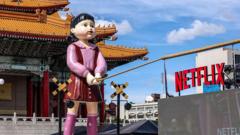José Mujica, known for his humble lifestyle and rejection of political extravagance, leaves behind a legacy that challenges traditional notions of leadership and governance.
Remembering Pepe Mujica: A Leader Who Redefined Political Modesty

Remembering Pepe Mujica: A Leader Who Redefined Political Modesty
The legacy of former Uruguayan President José "Pepe" Mujica, who passed away, highlights the significance of leaders living authentically among their people.
In a world often dominated by political opulence, José "Pepe" Mujica stood as a beacon of modesty and authenticity. The former president of Uruguay, who passed away recently, spent his political career redefining what it meant to lead. Rather than reside in the grandiose palace typically associated with the presidency, Mujica chose to live in a simple shack on the outskirts of Montevideo, surrounded by the life he cherished: farming and spending time with his lifelong partner, Lucía Topolansky, and their beloved dog, Manuela.
Mujica’s rejection of luxury was not only a personal preference but also a powerful political statement. He famously referred to the presidential residence as "crap," suggesting it should be repurposed as a school. This unorthodox decision to commute from his modest home—complete with a wood stove and overstuffed bookshelves—allowed him to remain connected with the everyday lives of his constituents, many of whom struggled economically.
Despite his presidency being marked by relatively unremarkable policy outcomes, Mujica's lifestyle earned him the affection of many Uruguayans, who respected him for living as they did. His authenticity resonated beyond national borders, capturing the attention of global leaders and audiences. Mujica often utilized his platform to critique rampant capitalism and advocate for a more equitable society, warning against the corrosive effects of greed.
Throughout his presidency, Mujica often returned home in coach class after meetings with world leaders, a stark contrast to the lavish lifestyles often associated with political power. He utilized this simple existence as a reminder that politicians should remain grounded and relatable, rather than be detached and elite.
José Mujica's legacy may serve as a reminder to current and future leaders that political power can be wielded with humility, potentially bridging the gap between government and the people it serves. His life exemplifies the profound impact that personal choices can have not only on a nation but also on the global stage, challenging others to reconsider the intersection of power and authentic living.
Mujica’s rejection of luxury was not only a personal preference but also a powerful political statement. He famously referred to the presidential residence as "crap," suggesting it should be repurposed as a school. This unorthodox decision to commute from his modest home—complete with a wood stove and overstuffed bookshelves—allowed him to remain connected with the everyday lives of his constituents, many of whom struggled economically.
Despite his presidency being marked by relatively unremarkable policy outcomes, Mujica's lifestyle earned him the affection of many Uruguayans, who respected him for living as they did. His authenticity resonated beyond national borders, capturing the attention of global leaders and audiences. Mujica often utilized his platform to critique rampant capitalism and advocate for a more equitable society, warning against the corrosive effects of greed.
Throughout his presidency, Mujica often returned home in coach class after meetings with world leaders, a stark contrast to the lavish lifestyles often associated with political power. He utilized this simple existence as a reminder that politicians should remain grounded and relatable, rather than be detached and elite.
José Mujica's legacy may serve as a reminder to current and future leaders that political power can be wielded with humility, potentially bridging the gap between government and the people it serves. His life exemplifies the profound impact that personal choices can have not only on a nation but also on the global stage, challenging others to reconsider the intersection of power and authentic living.






















